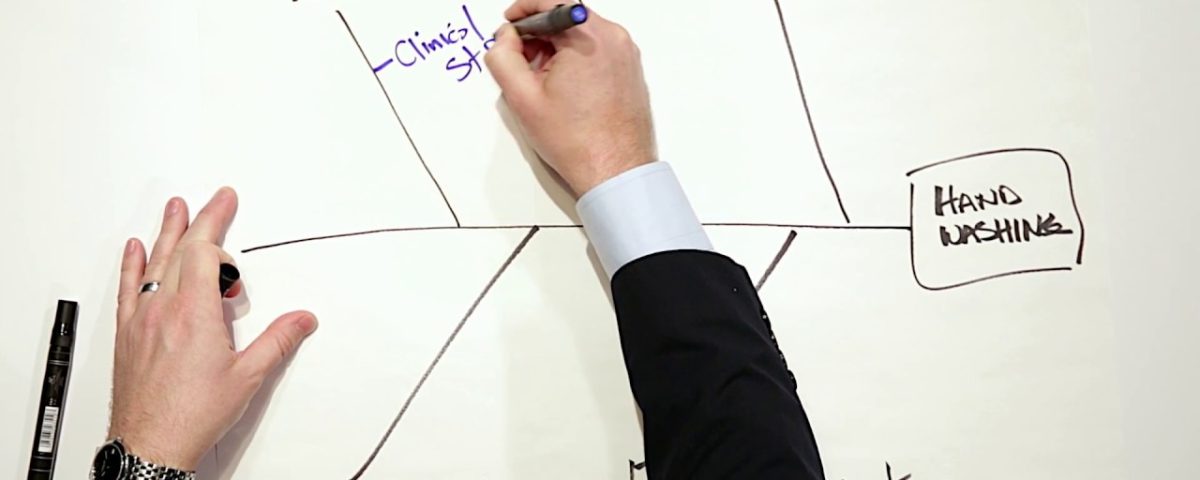Root Cause Analysis (RCA) is used to analyse the root causes of focus events with both positive and negative outcomes, but it is most commonly used for the analysis of failures and incidents. Causes for such events can be varied in nature, including design processes and techniques, organizational characteristics, human aspects and external events. RCA can be used for investigating the causes of non-conformances in quality (and other) management systems as well as for failure analysis, for example in maintenance or equipment testing.
RCA is used to analyse focus events that have occurred, therefore this standard only covers a posteriori analyses. It is recognized that some of the RCA techniques with adaptation can be used proactively in the design and development of items and for causal analysis during risk assessment; however, this course focuses on the analysis of events which have occurred.
Finding root cause and proffering effective solution is one the most tedious task of every individual. While some will resort to defensive tactics like it is a waste of their busy time, others will mistake corrections for corrective actions. This delays the closure of identified non-conformances and most time affect the certification process. It can also promote recurrence of process or systemic challenges which contribute to loss of revenue, productive time or productivity. Recurrent incidents and accidents.
This course introduces the corrective action process in Management. In addition, participants learn how to evaluate the philosophy, purpose and benefits of performing an effective cause analysis. The course is based on the context of EN/BS 62740:2015.
LEARNING OBJECTIVES
The intent of this course is to describe a process for performing RCA and to explain the techniques for identifying root causes. Participants will also acquire skills, approaches and tools for evaluating and improving the effectiveness and efficiency of a management system through effective cause analysis and implementation of corrective actions.
- Understand the difference between correction and corrective action
- Learn the basic steps of corrective action and root cause analysis
- Acquire skills for performing an effective cause analysis
- Enhance problem solving effectiveness by providing a model for more deeply analyzing problem situations.
- Promote the ability to provide problem-solving support in situations where one is not an expert in the process or technology involved.
- Expand the range of tools available for analysis of problem situations.
- Utilize various RCA tools
- Identify various root causes and select the most effective solution
- Take effective corrective actions and advise others to do so.
- To solve day to day business challenges
WHO SHOULD ATTEND?
Quality, Food Safety, HSE, risk and reliability managers, process engineers, technicians, operations supervisors and personnel, Process owners, occurrence investigators, analysts, maintenance directors, internal auditors, Compliance managers, and anyone who wants to improve their ability to solve recurring problems should attend this training.
COURSE CONTENT
Problem solving process
Management/organizational issues affecting RCA projects
RCA models
- Barrier analysis
- Reason’s model (Swiss cheese model)
- Systems models
- Systems theoretic accident model and processes (STAMP)
RCA techniques
- Events and causal factors (ECF) charting
- Multilinear events sequencing (MES) and sequentially timed events plotting
- (STEP)
- The ‘why’ method
- Causes tree method (CTM)
- Why-because analysis (WBA)
- Fault tree and success tree method
- Fishbone or Ishikawa diagram
- Safety through organizational learning (SOL)
- Management oversight and risk tree (MORT)
- AcciMaps
- Tripod Beta
- Causal analysis using STAMP (CAST)
Tools for root cause analysis (RCA)
- Data mining and clustering techniques
- Analysis of human performance
- Analysis of human failure
- Technique for retrospective and predictive analysis of cognitive errors
- (TRACEr)
- Human factors analysis and classification scheme (HFACS)
The Root Cause Analysis Process
- Initiation
- Establishing facts
- Analysis
- Description
- The analysis team
- Selection of techniques for analysing causes
- Validation of causes
- Presentation of results
Implementation of corrective actions
Roles and responsibilities
Case Studies and RCA:
- Conducting root Cause Analysis and Justify your answers
- Verify corrective actions and justify your answer
TRAINING METHODOLOGIES
- Presentation
- Case Study
- Individual Exercises
- Group Exercises
Duration: 5 Days
Delivery Options:
- Self-Study Material, Exam and Certification
- Online Training, Material, Exam and Certification
- Classroom Training Location: https://cognicert.com/delivery-partners/
Frequently Asked Questions: https://cognicert.com/faqs/
Enroll Now

